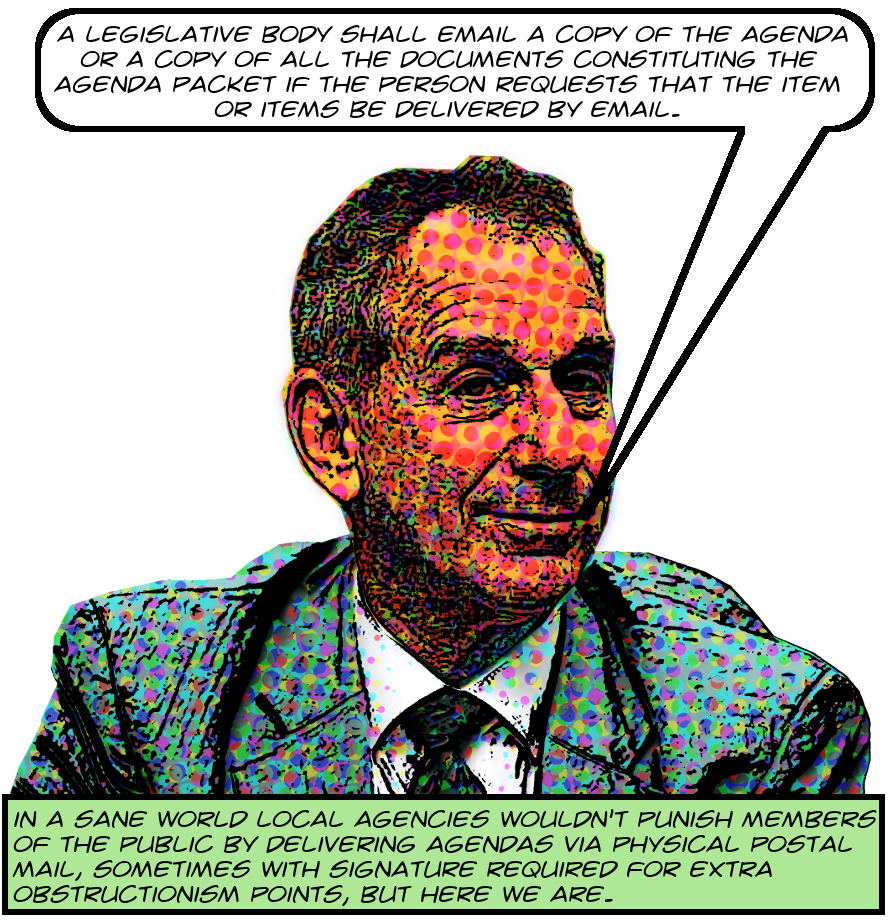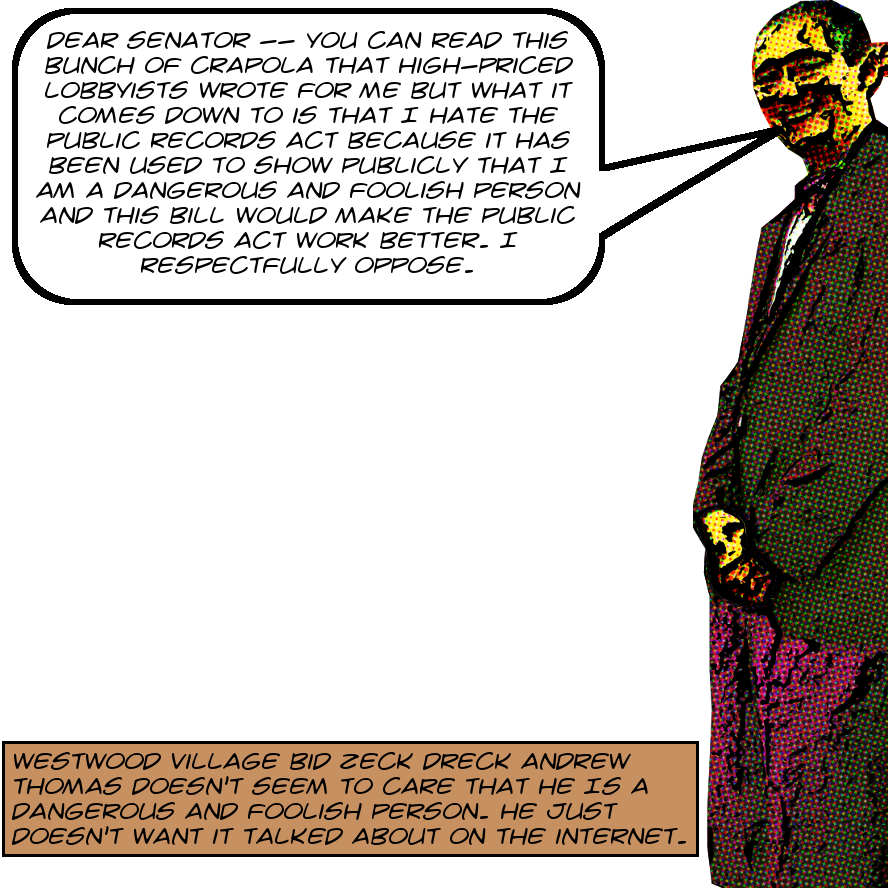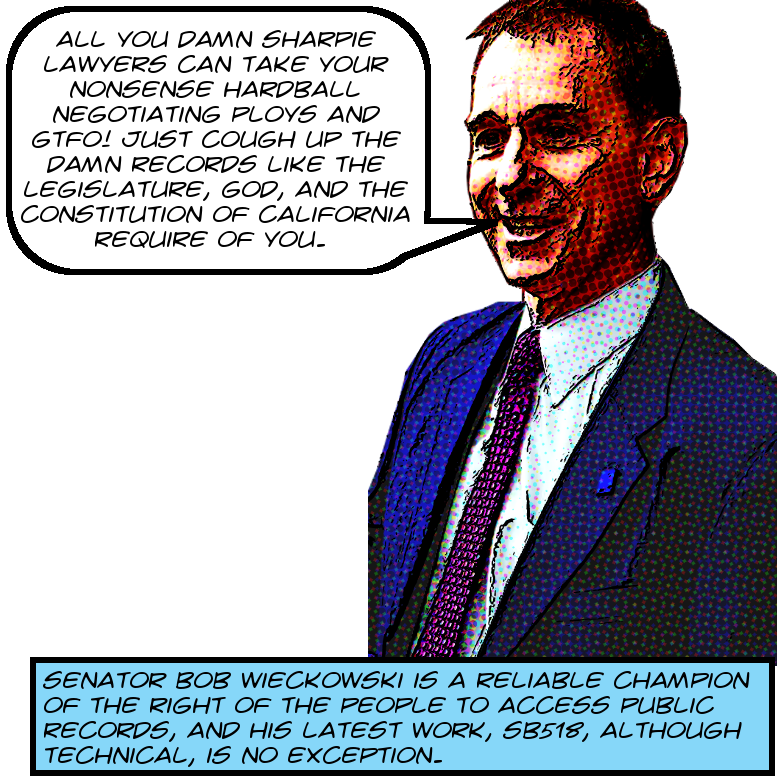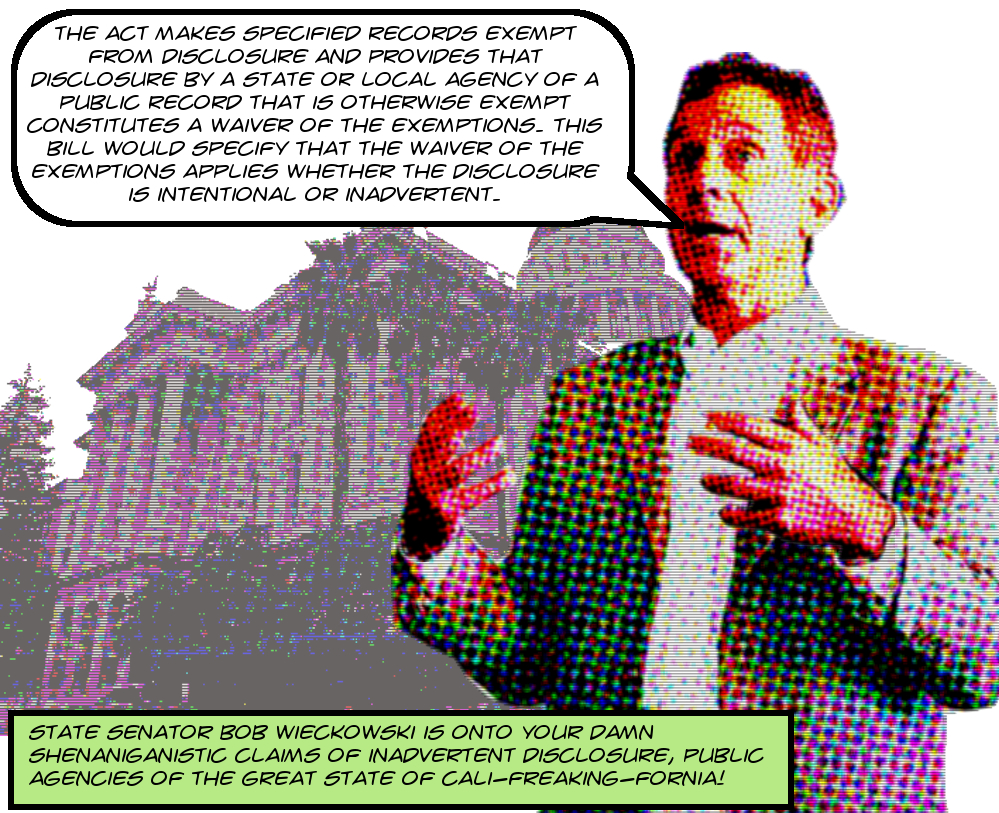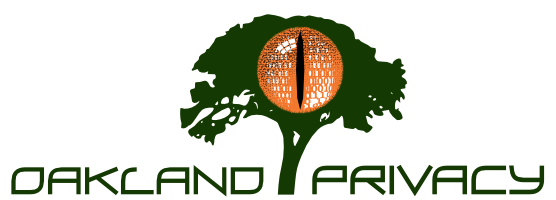 As you may well remember, earlier this year Senator Bob Wieckowski introduced the small but essential SB931. The Brown Act already requires public agencies to mail copies of agendas to members of the public on request.1At §54954.1 This bill would require them to email them if asked to.
As you may well remember, earlier this year Senator Bob Wieckowski introduced the small but essential SB931. The Brown Act already requires public agencies to mail copies of agendas to members of the public on request.1At §54954.1 This bill would require them to email them if asked to.
It’s very strange but sadly true that there are plenty of little backwater agencies, mostly business improvement districts and charter schools, who are so intent on obstruction that they will refuse to email agendas even though it’s free, even though they already email agendas to people they approve of. They will insist that the law only requires them to mail agendas.
And don’t get me started on how they send them via certified mail so that if people miss the first delivery it’s essentially too late to find out what the meeting is about. And if it’s a special meeting? Or if someone’s unhoused and doesn’t have reliable mail service? Forget it. So like I said, this is a minor problem, something these agencies ought to be doing anyway but some of them just won’t and Wieckowski’s bill will fix it.
As far as I know there’s no organized opposition. I mean, what are they going to say? That they enjoy exploiting this unfortunate loophole to mess with people? But there’s a lot of support! I already wrote about the letter sent by our friends at the Los Angeles Sunshine Coalition. The California News Publishers Association sent a nice little letter. And just the other day I learned that Oakland Privacy, a group I hadn’t heard of before this, wrote a really extraordinary, really dynamic letter in support.
You can read the entire thing below, but they raise a really important point that no other support letter has brought out in such detail. That’s the fact that if members of the public want to monitor the agendas of many local agencies to see if they want to comment on specific items, essentially their only practical choice right now is to check the agencies’ websites regularly.
For people or groups that monitor tens or hundreds of agencies this is not only time-consuming but also unreliable. Requiring notifications by email would solve this problem. Anyway, as I said, read on for the full letter, and if you have a moment, why not drop Wieckowski a line or call him in support yourself?
Continue reading Oakland Privacy Wrote A Really Nice — And Really Powerful — Letter Of Support For Bob Wieckowski’s Minor But Essential SB931 — Which Would Require Local Agencies To Email Copies Of Their Agendas To Members Of The Public On Request — Read It Right Here! — And Think About Writing Your Own!

